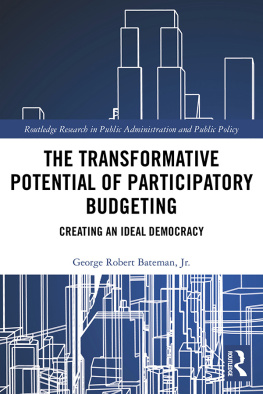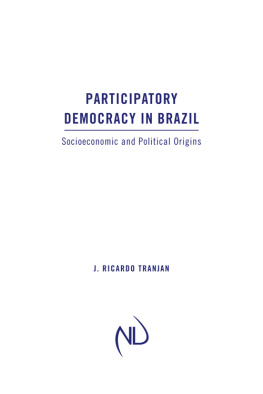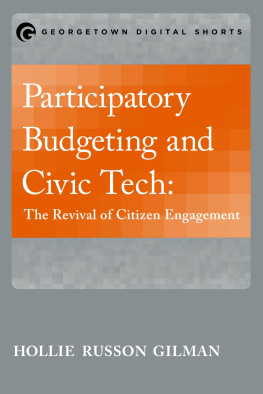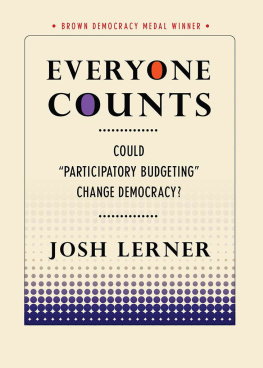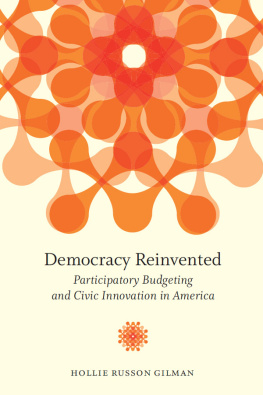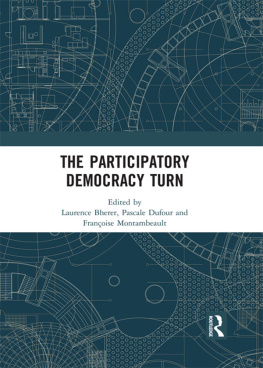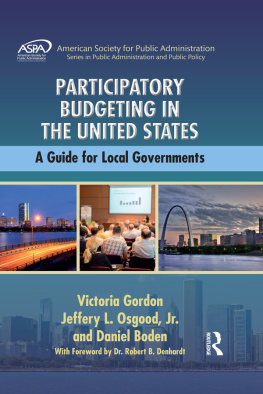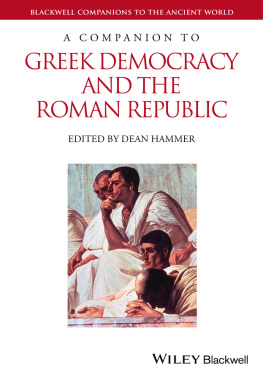The Transformative Potential of Participatory Budgeting
In this book, George Robert Bateman, Jr. presents a philosophical examination of the potential benefits of participatory budgeting (PB), with recommendations of how they might be realized.
The work of social philosophers like Thomas Jefferson, John Dewey, Robert Putnam are studied to better understand the potential benefits and their effect on individuals and communities. Using social provisioning and John Fagg Fosters theories of instrumental value and institutional adjustment, Bateman demonstrates how participatory budgeting in New York City (PBNYC) can realize its full potential and transform individual participants into their better selves and also transform their communities. This transformation can occur when participants are able to make decisions about things that matter in their lives. As more of us become empowered and actively engaged in deliberations concerning local economic/political issues the more we will experience public happiness, greater understanding of others, greater development of our morality, and an increased sense of belonging.
The Transformative Potential of Participatory Budgeting will be of great interest to scholars in the fields of normative political theory, political philosophy, local politics, heterodox economics, institutional economics, political sociology, urban sociology, and community sociology.
George Robert Bateman, Jr. earned his Ph.D. in Economics at the University of Missouri, Kansas City (UMKC) in 2018 through an interdisciplinary program with economics as his primary discipline and political science as his co-discipline.
Routledge Research in Public Administration and Public Policy
Contextualizing Compliance in the Public Sector
Individual Motivations, Social Processes, and Institutional Design
Saba Siddiki, Salvador Espinosa, and Tanya Heikkila
The Politics of Fracking
Regulatory Policy and Local Community Responses to Environmental Concerns
Sarmistha R. Majumdar
The Data Economy
Implications from Singapore
Sree Kumar, Warren B. Chik, See-Kiong Ng and Sin Gee Teo
Corruption Prevention and Governance in Hong Kong
Ian Scott and Ting Gong
Judicializing the Administrative State
The Rise of the Independent Regulatory Commissions in the United States, 18831937
Hiroshi Okayama
State Politics and the Affordable Care Act
Choices and Decisions
Edited by John Charles Morris, Martin K. Mayer, II, Robert C. Kenter and Luisa M. Lucero
The Transformative Potential of Participatory Budgeting
Creating an Ideal Democracy
George Robert Bateman, Jr.
For more information about this series, please visit: www.routledge.com/Routledge-Research-in-Public-Administration-and-Public-Policy/book-series/RRPAPP
The Transformative Potential of Participatory Budgeting
Creating an Ideal Democracy
George Robert Bateman, Jr.
First published 2020
by Routledge
52 Vanderbilt Avenue, New York, NY 10017
and by Routledge
2 Park Square, Milton Park, Abingdon, Oxon, OX14 4RN
Routledge is an imprint of the Taylor & Francis Group, an informa business
2020 Taylor & Francis
The right of George Robert Bateman, Jr. to be identified as author of this work has been asserted by him in accordance with sections 77 and 78 of the Copyright, Designs and Patents Act 1988.
All rights reserved. No part of this book may be reprinted or reproduced or utilized in any form or by any electronic, mechanical, or other means, now known or hereafter invented, including photocopying and recording, or in any information storage or retrieval system, without permission in writing from the publishers.
Trademark notice: Product or corporate names may be trademarks or registered trademarks, and are used only for identification and explanation without intent to infringe.
Library of Congress Cataloging-in-Publication Data
A catalog record for this title has been requested
ISBN: 978-0-367-33403-1 (hbk)
ISBN: 978-0-429-31969-3 (ebk)
Typeset in Times New Roman
by Wearset, Boldon, Tyne and Wear
Contents
The purpose of this research monograph is to identify the potential benefits of participatory budgeting (PB), learn how they might be realized, and explore the implications of achieving these benefits. PB is a process where people gather in neighborhood assemblies to decide how to spend a portion of their municipal budget, which has proven to be successful and very popular since its invention in 1989 (Baiocchi & Ganuza, 2012). It is a form of local direct democracy. The PB process decides which public goods and services to purchase and how these goods and services will be distributed, within the bounds that city officials have authorized.
Since human beings are social beings, it makes sense that increasing our ability to work with and help others would be beneficial for both individuals and the community. This research explores how we might find our better selves by becoming empowered and actively engaged in public deliberations about local economic/political issues. It is proposed that this can be done by making improvements to PB.
The hypothesis of this research monograph is that as PB processes become more deliberative, more empowered, and greatly expanded the more participants will experience public happiness, greater understanding of others, greater development of morality, and an increased sense of belonging. It is proposed that PB processes be expanded until they become local direct democracies. This is a study about how the ideal of democracy can be achieved and how achieving this ideal can transform individuals, communities, and nations. The benefits of increased public happiness and greater development of morality are not expected to emerge until PBs responsibilities are greatly expanded.
PB is examined to learn how PB processes can fully realize its potential to transform individuals and increase its contribution to the social provisioning process. Many heterodox economists find the concept of social provisioning to be useful because it considers factors that are outside the scope of orthodox economics. Social provisioning expands on the orthodox definition of provisioning by including intangible benefits as well as the tangible benefits of food, clothing, and housing. In this case, the intangible benefits are increased public happiness, greater understanding of others, greater development of morality, and an increased sense of belonging.
.
The potential benefits in the hypothesis are examined in by reviewing the relevant work of social philosophers, for each benefit, in order to gain a better perception of how these benefits can be realized and how they can change individuals lives and community life. The social philosophers provide a vision of a better society and a better political system and show how it can be done. A clear vision will help people to commit to implementing a new social innovation such as transforming PB processes into local direct democracies.
Recommendations are made, in ). The benefits generated from improving PB should include increasing our public happiness, becoming more understanding of others, develop our morality, and increase our sense of belonging. Once the recommendations begin to be implemented the benefits should have transformative effects on individual participants regarding their social relationships and their sense of belonging to a community. This should cause participants to want to spend more time supporting PB by attending meetings. These benefits should increase participation though word of mouth as they begin to be realized.

